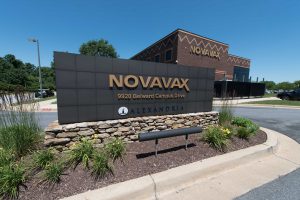In partnership with the government’s Vaccine Taskforce, Novavax has started a Phase 3 clinical trial of its COVID-19 vaccine. The trial will test the efficacy and safety of the drug, as well as evaluate the immunogenicity. The trial will include 10,000 individuals between the ages of 18 and 84, who will receive two doses of the immunization over the course of four to six weeks. The U.S.-based company hopes to produce two billion doses of the drug per year, with plans to meet this goal by mid-2021.
The vaccine, engineered from the virus’ genetic sequence, has thus far been shown to elicit robust antibody responses in Phases 1 and 2 of the trial. The trial is an observer-blind placebo-controlled trial, with half the patients receiving the drug, and half receiving the placebo. At least 25% of the participants will be over 65 years old, and priority will be given to other groups shown to be most affected by COVID-19, including certain minorities.
The trial has included 30,000 participants in the U.S., and Phase 3 in the U.K. begins as the country heads into an uptick of new cases, which many consider to be part of the much-anticipated “second wave” predicted since the spring.
“With a high level of SARS-CoV-2 transmission observed and expected to continue in the U.K., we are optimistic that this pivotal Phase 3 clinical trial will enroll quickly and provide a near-term view of NVX-CoV2373’s [the vaccine’s] efficacy,” said Novovax President of Research and Development, Gregory Glenn, M.D.
With the same transparency provided by much larger companies, like Pfizer and AstraZeneca, who have completed COVID-19 Phase 3 trials, Novovax will publicly release their trial protocols. These protocols are usually classified, but the nature of the global pandemic has prompted unprecedented levels of transparency even in the pharmaceutical industry, where information is usually closely guarded.
The U.K., as well as Spain, France, and other countries throughout Europe, has seen COVID-19 numbers creep back up in recent weeks. While this doesn’t bode well for easing up on travel restrictions, new developments in vaccine research appear promising for future prevention of COVID’s spread.























